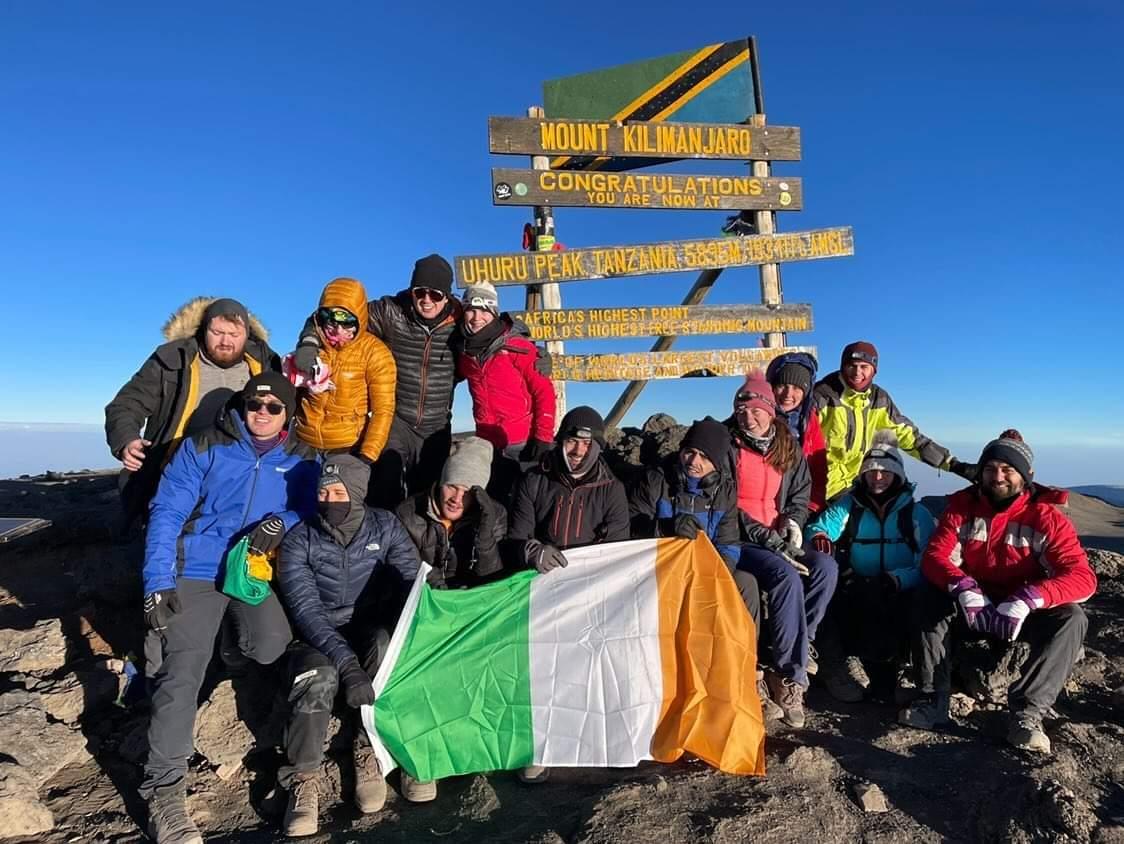
Few can say that they’ve stood at the peak of Mount Kilimanjaro, looking out over Tanzania from the highest point in Africa. Fewer still can say that they’ve done so having raised over €66,000 in support of the Meningitis Research Foundation over the course of multiple years, as a group of eleven Trinity students did this August.
The trip to the summit of Kilimanjaro took five days, but fifth year Engineering student Heather Murphy explained that the event was three years in the making, with planning beginning in 2019. “We had to kind of defer each year and it didn’t go ahead [due to COVID-19]”, she explained. After years of waiting, the group “had eleven students and all eleven, thankfully, summited”, Heather added.
Fundraising and organising played a key role in preparing for the climb, which was done through the tour operator Choose a Challenge, which specialises in philanthropic student travel. Murphy, the group’s Challenge Leader, acted as a liaison between Choose a Challenge and the Trinity students involved. She touched on the process of meeting their fundraising goal, saying, “a lot of us had to get very creative since there was a pandemic on, so the likes of your pub quizzes and such weren’t really an option. But it did make us think outside the box”. In the end, she found that, “people are, in fact, quite generous. A lot of people took on fundraising opportunities like sea swims every day in September or running virtual marathons and taking on sort of physical challenges besides climbing Kilimanjaro.”
”You could call it good training”, she suggested, laughing, “but actually driving each other along is really, really powerful. Having someone who’s another student who you’ve gone through this journey with and they’re feeling the same way and they’re feeling really bad, basically, and you’re exhausted physically and mentally, having them just put their bag on their back and say, ‘alright, we’re going to make it. Another two hours, another four hours. One step in front of the other.’”
During this time, Murphy reflected that “raising awareness for meningitis was a bit of a learning curve itself”. She specifically recalled that “it was really powerful the amount of people who came up to us at events or say, backpacking, and say ‘oh, I had meningitis as a kid, and had there been this research or this treatment, I maybe wouldn’t have lost these limbs’”. Today, despite treatments and vaccines existing for many forms of meningitis, it still kills approximately 250,000 people every year according to the WHO, and affects many more.
The conversation with Murphy made it clear that the challenges of the trip, of raising thousands of euros in support of life-saving medical research and of completing a climb with a 70 per cent success rate, was not a drawback of the experience, but rather its foundation. She commented:“I’d encapsulate the whole thing as a life lesson of an experience, from the very moment you start out, set foot on the plane, and then climb the mountain.”
Speaking about the experience itself, Murphy described it as an illustration of the power of sharing a difficult experience with others. “It is phenomenal up there – it’s freezing, your eyelashes freeze, it’s about -16 degrees. It’s cold, it’s tough, and you’re tired. You’re just physically drained, and it’s so hard to breathe because the air is so thin.” She also added that “driving each other along is really, really powerful. Having someone who’s another student who you’ve gone through this journey with and they’re feeling the same way and they’re feeling really bad, basically, and you’re exhausted physically and mentally, having them just put their bag on their back and say, ‘alright, we’re going to make it”.
She continued, “but actually driving each other along is really, really powerful. Having someone who’s another student who you’ve gone through this journey with and they’re feeling the same way and they’re feeling really bad, basically, and you’re exhausted physically and mentally, having them just put their bag on their back and say, ‘alright, we’re going to make it. Another two hours, another four hours. One step in front of the other.’”






